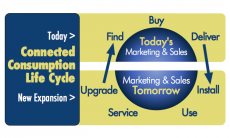I had majored in accounting, which was seen as vaguely sinister by the other programmers that I worked with 25 years ago. I had never learned computer science, so I asked the others to let me copy some of their code for sorting records or performing some other common task. These computer science graduates were shocked, because they had learned programming in school, where copying was also known as cheating. But I told them that, in real life, plagiarism is productivity. Unfortunately, that doesn’t apply to catalog marketing.
This was brought to mind when I spoke to a veteran catalog marketer who has been dutifully copying the manufacturer’s descriptions into their print catalogs for years, and saw nothing wrong with doing the same thing on the Web. I know that it’s productive, but this kind of plagiarism has consequences.
First off, while reusing manufacturer’s content was common practice at one time, many manufacturers now copyright their material and look askance at it being copied without permission. That’s a legal risk that you should be aware of, but if you are getting legal advice from me you have bigger problems than copyright infringement.
No, you want marketing advice from me, and I’m here to tell you that from a marketing standpoint, copying the manufacturer’s content, even if you have permission, is a dubious practice. Perhaps you’ve heard of the ominously named “duplicate content penalty,” where Google and other search engines try to show just one version of content in the search results. So, if you have the same text as the manufacturer on your product pages, only one will make the search results. (Hint: It will probably be the manufacturer’s.)
But even if duplicate content penalties did not exist (and I am glossing over exactly how they work because this is the more important point), you still are advised to write your own content. Why? Because if you’re selling the same products with the same content as the manufactuerer (and doubtless others copying the manufacturer’s content), how can you differentiate? The only thing you can compete on is price.
And it doesn’t take an accounting major to tell you that the Internet makes it very easy for shoppers to compare prices, so there’s only one winner on price. It seems like differentiating your marketing gives you better odds than that.






